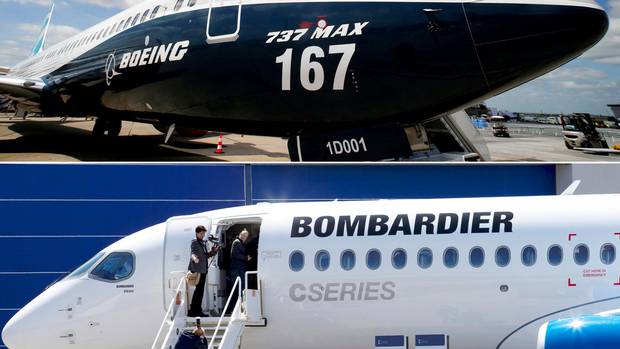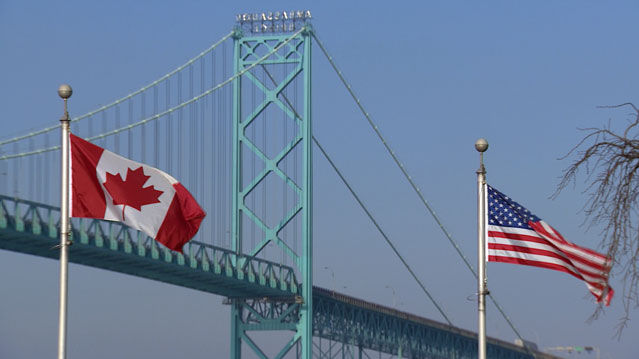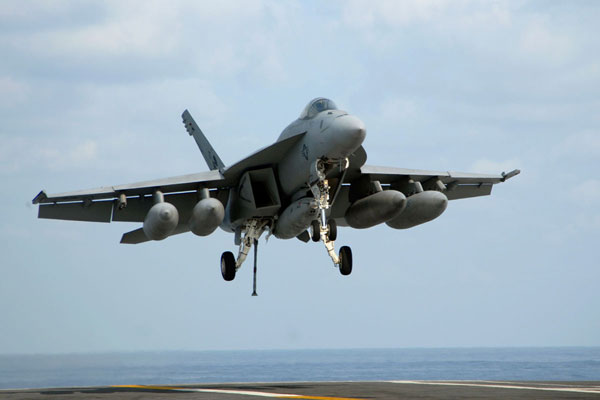“MY STYLE of deal-making is quite simple and straightforward. I aim very high, and then I just keep pushing and pushing and pushing to get what I’m after.” ― Trump: The Art of the Deal
 By Ray Rivers
By Ray Rivers
September 28th, 2017
BURLINGTON, ON
The first push, tariffs the US imposed on Canadian softwood lumber, hit us only a couple of months ago. This is not the first time the US has attempted to disrupt trade on this file. But it’s an easy target since Canada virtually owns the US market for imported softwood.
Another pressure point is Canada’s supply management systems, notably dairy. The US dairy corporations would dearly like to break open this market to their products and help alleviate the subsidized over-production of milk products stateside. This even though American dairy farmers are already net exporters to our country.

Boeing wants to do everything it can to protect its markets world wide – keeping Bombardier out o their market is one part o that process.
And this week there was a whacking 220% countervail duty imposed on Bombardier’s new passenger plane being sold to Delta airlines. Quebec’s one billion investment in our modest aircraft maker apparently ticked off mighty Boeing Corporation who isn’t even competing in that market. And Boeing itself is in a he-said-she-said battle over subsidies with European Airbus, given the billions of bucks it gets from US and state governments.
It’s the ‘art of the deal’. Trump’s strategy to help make America great again involves having your cake and eating it too. And flexing muscles is all part of the game. If he can hurt us enough then maybe we’ll give in to US demands to restructure NAFTA to America’s advantage; American courts, guaranteed US content in imports and none of that environmental, aboriginal or gender nonsense.
To be clear NAFTA is a free trade agreement in name only. Unlike real free trade as they have in the EU, the North American entities still maintain customs at the borders and mostly restrict labour movement. Even so, there is overwhelming proof that the ‘three amigos’ trade deal has been successful.

It’s tough to maintain a strong positive trading relationship with a partner, the President of the United States, that doesn’t understand and is probably unfit for the job he holds.
It has helped grow all three members’ economies and has lifted Mexico’s standard of living the most. In fact economic growth there has helped curtail and even reverse the flow of illegal immigrants into the US. It is unfortunate that the US president fails to appreciate the irony in that NAFTA has done more to stop illegal Mexican immigration into his country than his border wall ever will.
The USA is neighbour, good friend and biggest trading partner so the Canadian and Mexican governments have been careful in responding to all the turbulence and chaos they’ve seen recently whether in trade, environment, immigration or other global affairs. Canada’s response to the softwood lumber assault was measured and cautious, relying on mechanisms that have served us well in the past.
The challenge is to stay calm and avoid a real trade war, in which case nobody wins. This is just a negotiating strategy after all, led by your above average American real estate tycoon, the man who wrote the book. After all, tearing up NAFTA would hurt everyone in our relatively integrated North American industrial economy, even if it might proportionally hurt Canada and Mexico more in the short run.
One would think even Trump would get that. But he doesn’t because free trade is incompatible with an ‘America First’ protectionist doctrine. The principle of comparative advantage, which underlies the very idea of free trade, is a sort of zero sum game. When everyone wins, America wins. It really is a little different than managing a casino where only the Casino owner wins.

The Boeing aircraft manufacturing company would like to sell their Super Hornet fighter aircraft to Canada. We need new military airplanes. But they don’t want to allow a Canadian company to sell their aircraft into the American market. Nice people.
Canada does have to respond, as part of the negotiation game, and we have the means to effect some damage. No super hornets is an obvious first step. Joining the Europeans, our latest free trade partners, in their ongoing confrontation over who subsidizes more – Boeing or Airbus – is a no brainer. And we should consider countervail on any Boeing sales here if we can prove it.
But we need to remember that Boeing also employs Canadians and that US presidents come and go and the next one may be a free-trader for a change. Still NAFTA is tired and in need of an update. It is time to scrap that overreaching ‘investor-state’ provision for starters.
The entire trade deal needs to be built around environmental considerations with appropriate measures for protection, including mitigating climate change. And there can be no real free trade in services without free mobility of labour and common labour standards. This is the cornerstone of the EU and its free trade area.
Free trade is a neoliberal concept and one that most conservatives applaud because of the opportunity if offers to better the business case. But Donald Trump is neither a neoliberal nor a conservative – he is just Trump. And it is doubtful that he really understands that running a perpetual trade surplus, even if the US could, is every bit as unsustainable as running an on-going deficit.
 Ray Rivers writes weekly on both federal and provincial politics, applying his more than 25 years as a federal bureaucrat to his thinking. Rivers was a candidate for provincial office in Burlington in 1995. He was the founder of the Burlington citizen committee on sustainability at a time when climate warming was a hotly debated subject. Tweet @rayzrivers
Ray Rivers writes weekly on both federal and provincial politics, applying his more than 25 years as a federal bureaucrat to his thinking. Rivers was a candidate for provincial office in Burlington in 1995. He was the founder of the Burlington citizen committee on sustainability at a time when climate warming was a hotly debated subject. Tweet @rayzrivers
Background links:
Art of the Deal – Softwood – More Softwood – Boeing-Bombardier –
More Bombardier – After NAFTA – Boeing Subsidies –
Canada-US Trading – Neoliberalism –




















Trump’s zero sum game negotiating style is outdated and ineffective. A much better style is the one suggested by Fisher and Ury in their book “Getting to Yes”. Unfortunately we’ll have to wait ~3 years for a new president who understands that.